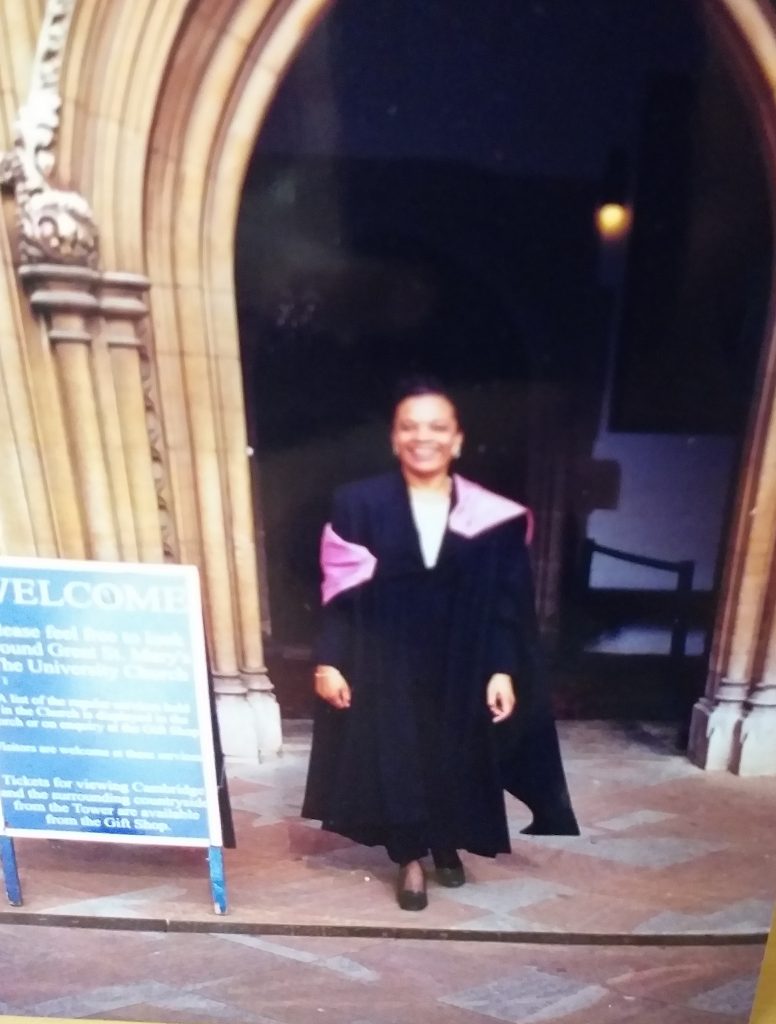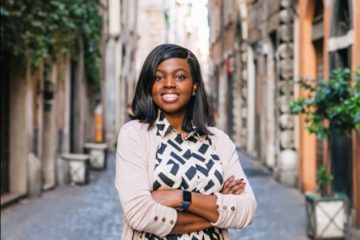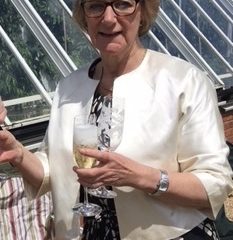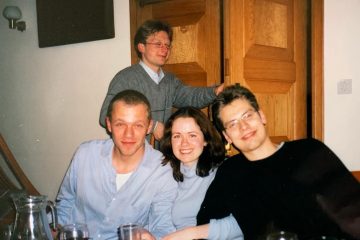Life Before Cambridge
I was born in a small district in Jamaica to a large family of mostly males. My mother was a house wife and my father was a retired electrician and poultry farmer. My parents were of a generation of the lower middle class who believed in education. They felt they had a responsibility to give all of us a sound secondary education. Anything else after that was entirely up to the individual. With one or two exceptions, my brothers had all gone to university. I had gone on a church outing to the university campus at the ripe old age of eight. The moment I saw the grand walk way to the Senate House, I flew out of the bus, and with arms spread wide, declared to the world that I was going to university. Sad to say the entire bus load of church brethren had a hearty laugh at my expense. Happily, there is power in the words, and I was to go on to get, not one, but two degrees from the University of the West Indies.
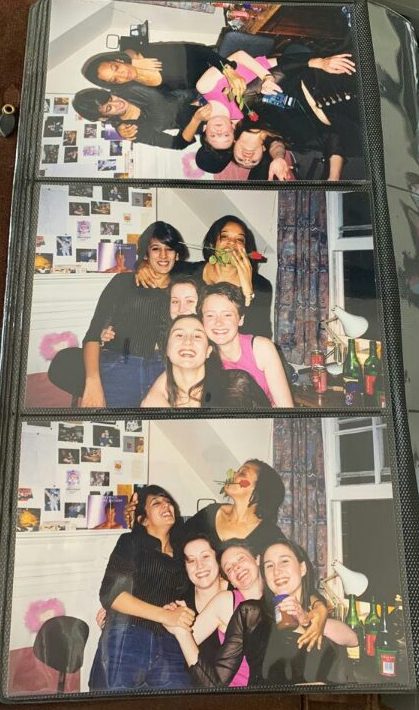
After my second degree which was in law, I joined the Crown prosecuting service as a public prosecutor. It was a rewarding and fulfilling job. I was happy to have come this far. Apart from my brothers, and my younger sister, only one other female from my district had gone to university. I had a degree in history, politics and economics and I was a lawyer. But for some reason, it came to a point where I needed to do something more. Much as I loved my job, I felt I was being stifled in my current position. Instead of resigning, I decided to do the next best thing. I took a leave of absence and decided to do a master’s degree.
It occurred to me that I was interested in two diametrically opposed areas of study. I wanted to do criminology and criminal reform, but I also wanted to study commercial law. I couldn’t afford to pay my own way through postgraduate studies so I applied for scholarships from the British Counsel, which offered the Chevening Scholarship and the Cambridge Commonwealth Trust. I knew nothing about either of these, however, I decided to put my ears to the ground and rumour had it that these were the best scholarships around. For the Chevening Scholarship, I found out that you had no choice in what university you attended, as they placed you based on your area of study. I won a scholarship to attend the University of Wales to study prison reform.
At the time I happened to have been dating a brilliant scholar, who was an Oxbridge graduate with a double first class from both universities. He encouraged me to apply to Cambridge University. I had been regaled by him with stories of Cambridge for months on end and knew that there was no chance I could ever matriculate into such an elite university. But he persisted and I gave in and applied. To my utter astonishment I received not only a Commonwealth Scholarship but also a conditional acceptance to Cambridge, subject to getting into a College. The trouble was that the one I had placed on the application rejected me and I fell into the pool.
My Life in Cambridge
Going to Cambridge University was a dream. I will be forever grateful to St Edmund’s College for pulling me from the pool and making that dream a reality. The acceptance came very late and for that and other personal reasons, I came up rather late in the term. I missed the matriculation ceremony, of course, and the pictures, both for the College and in the Faculty of Law.
I was not offered a room in College before I arrived. I had a vague notion that there was some sort of student hostel available nearby. I arrived in October after what felt like a 24 hour Journey, tired, cold and hungry, and petrified not knowing where I was going to live. The taxi from the train station took me to what the driver described as the little College on the hill. The fairy godmother at the front desk took one look at me and offered me a room in the towers. I slept for two whole days. She later told me she was afraid I was going to collapse right there in the entrance hall.
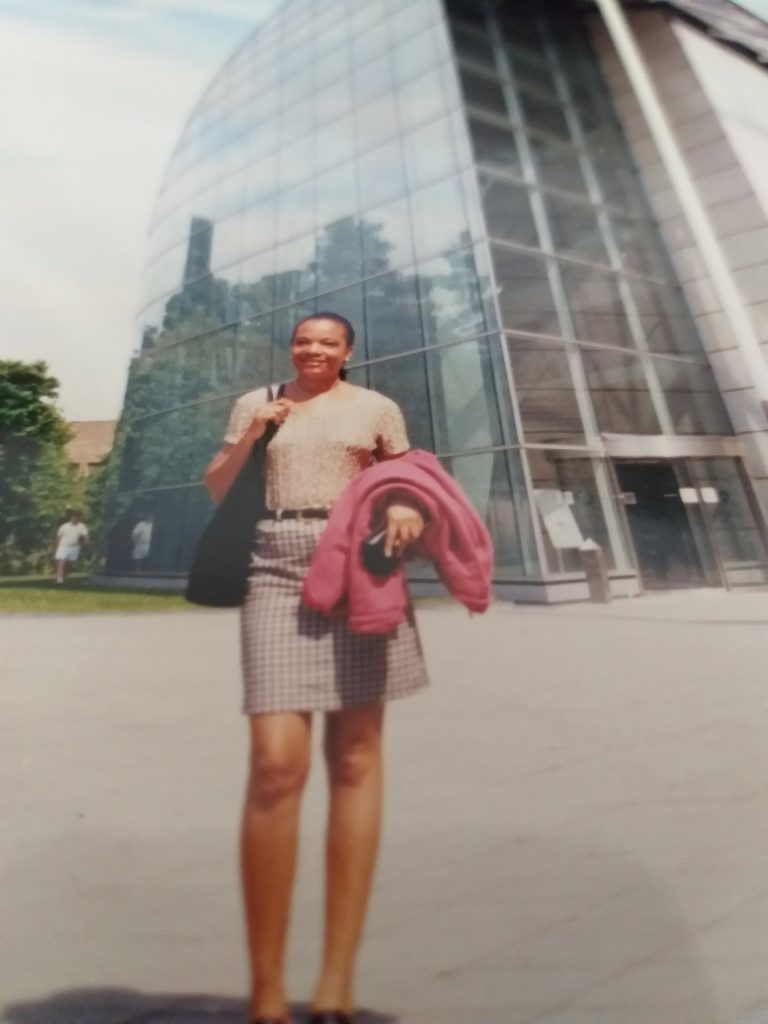
I had never heard of St Edmund’s College before coming to Cambridge, but from the first week of arrival, I never wanted to leave. Truth be told I barely left the comfort of its halls. It was a small diverse College with a homely feel. I spent no time in the faculty at all, except for classes. For one, it was too cold and too far from College. I found one had to cycle everywhere in Cambridge and I did not ride. Every attempt to do so met with abject failure. Secondly, I saw no reason to leave my beloved Eddies. Whereas, the faculty was big, cold and imposing, the College was warm and delightful.
I grew tentacles which stretched out and embraced every single aspect of College life. I embraced the staff, especially those in the dining room. I almost drove the butler and his wife to distraction with my “whinging”, (which I discovered was an actual word) over the menu in College. Why couldn’t I have rice and potato together? I even dutifully went to every “talk” at the Von Hügel Institute.
I embraced the fellows and tutors. Dr Judith Bunbury was my favourite. Judy immediately took me under her wings. She took me on my first trip to the West End to see the musical the Sound of Music. She spent more time watching me enjoy the show than watching the actual show. She could not believe I knew all the words to every song and all the dialogue. She was later to declare, tongue in cheek of course, that I was perhaps more English than she was. She enticed me to join the choir, with her husband the vicar and Terry as male back-up vocals to the glorious voice of Andreas. She helped me to find my voice.
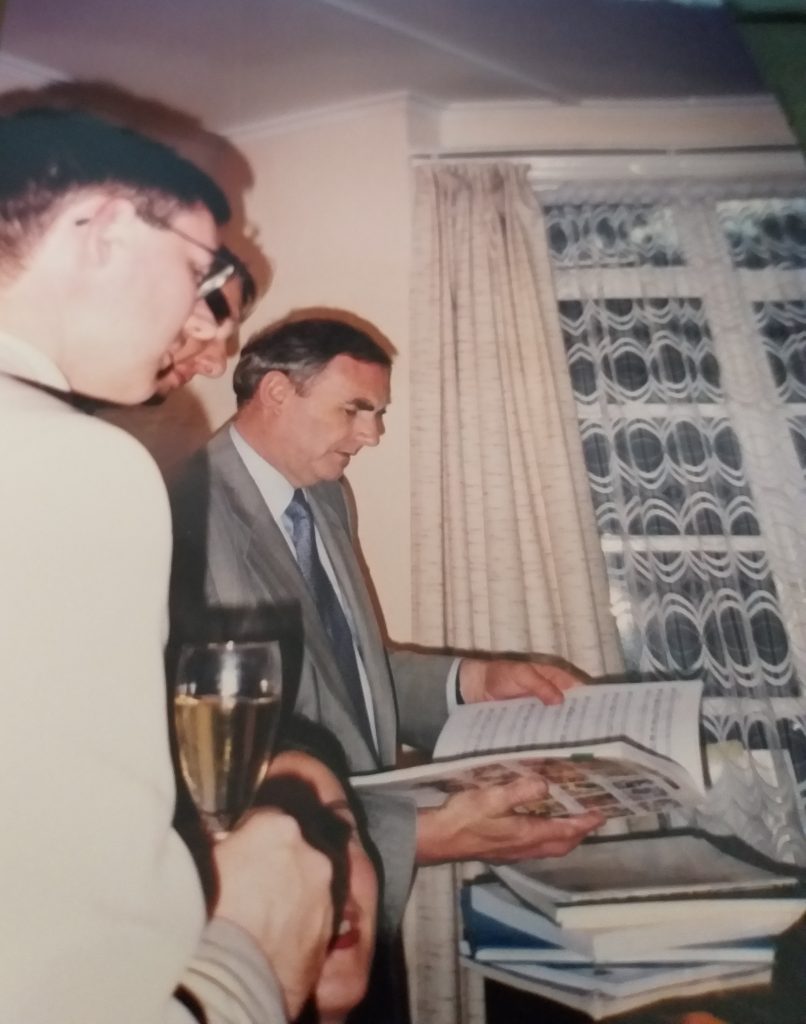
Terry was a wit, with a ready smile and an “I am up for anything” attitude. Father Frank, became a dear uncle who would pop up at your room at a moment’s notice when you needed him most. Dr Helen mason, who was more like a radical aunt and Dr Colin Honey, who took me to London to see my first Opera.
Then there was the Master, Sir Brian Heap. I still recall to this day, Christmas day spent with him and his wife in College. He did not wish for those of us who did not go home for Christmas to feel lonely on Christmas day. I still try to keep in touch, especially at Christmas. Also, how could I forget how privileged I felt to spend a weekend in December at a lodge at the Windsor Palace estates with a group of commonwealth scholars, curtesy of its patron, the Prince of Wales.
I thrived at St Edmund’s. It was billed as an international graduate College, and that it certainly was. There were students from everywhere. I became multicultural. I couldn’t seem to have enough friends. I made friends from every continent. We did everything and went everywhere. The best time for me was when one of them had family visiting. It always meant an outing or two. Of course I was for closer to some than others. I met Vlatka Kolic, a Croatian language student in the computer room. By then Espen had tired of trying to teach me how to send an email. Vlatka took over, but she too also stopped pretending I was learning anything. I still do not know what a URL is, but I can send an email now. I continued going to the computer room just to chat with Vlatka and very soon she became a close friend. After we graduated, she married her College crush and love of her life, Andy, in Greece. Vanessa and I went to the wedding.
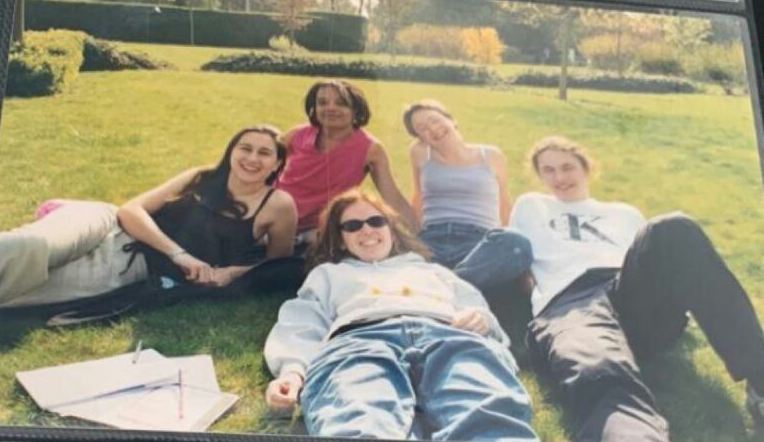
I also met Vanessa Pearson in College. She was an Australian fashion plate and always had coats and boots of an infinite number. I was always cold, and we actually became friends after she introduced me to thermal underwear, which I had never heard of. Before that I was wearing layers of clothes, which made me look fat, even though I only weighed 110 pounds at the time. Then there was Jane Higginbottom, the tiny English rose who heard me complaining of the constant walks to faculty and back, (my excuse not to go) and offered me her bike. It was a huge thing, and after four failed attempts to balance on it, I thanked her nicely and declined. These three after twenty years, are still firmly “my girls”.
There were many others of course which formed our happy and sometimes raucous band. Ganga my neighbour from Sri Lanka, Edna from Mexico for whom I became a confidant, Lucky from Taiwan, Siddarth from India, Patience from Ghana and Alfred from Singapore.
I also embraced the unlucky few who were attached to the College but did not live there. Nevertheless they came every single day morning and evening to soak up the friendly atmosphere of morning and afternoon tea. Joanne was the most colourful and prolific of the bunch. I found her fascinating, not least of which was because she was a rebel without a cause with rings appended to all parts of her body. But she was the sweetest girl. Last I heard of her, she had gotten rid of the pins and was a district judge in Canada.
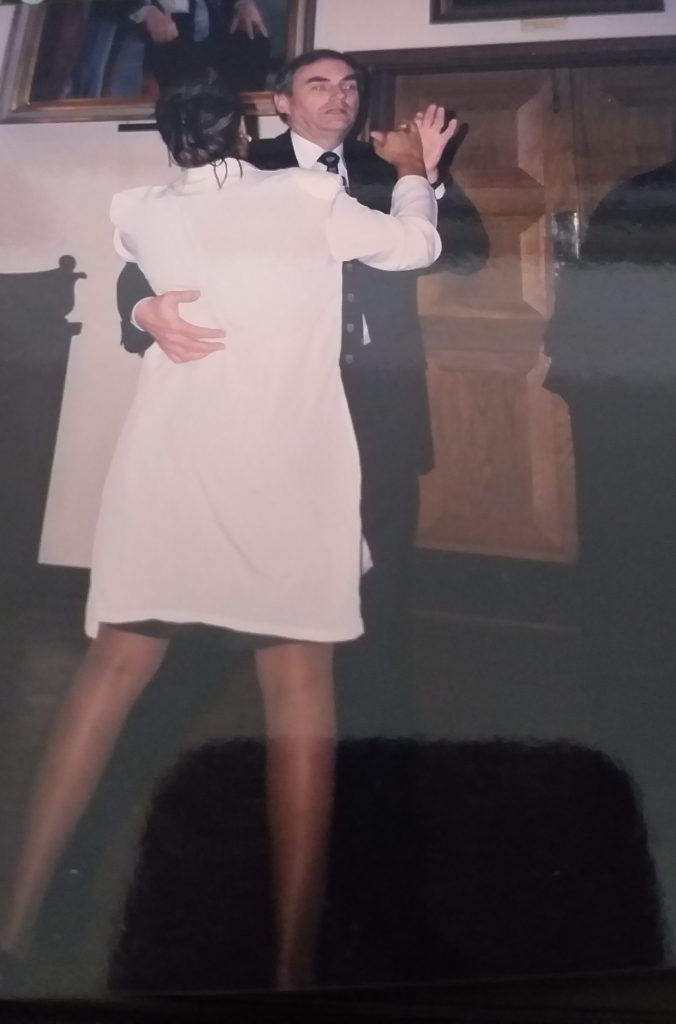
I loved formal Hall, the highlight of which was dressing up and drinking sherry. The garden parties were also something to look forward to. Many glorious nights were spent in Eddies bar or at an Eddies bop. We went to other bops but none could compare. Edna and I discovered Latin dance at a College miles away. We went to a few classes but Edna, who could ride got tired of walking and pushing her bike just to please me. I can still surprisingly do a mean Latin dance. On a recent trip to Argentina I showed my colleagues that it was not just an empty boast.
I did not like the pubs much as I am not a drinker, but there were many memorable nights out on the town. Days and weekends were spent exploring famous Colleges, walking along the backs, museums, Kettle Yard, and punting (which I just could not get the hang of.) Then there were the trips to Stonehenge, Westminster Abbey, numerous palaces and castles, whenever someone’s family came to visit. I still recall with pleasure the long invigorating walks through the meadows down to Grantchester for tea and back.
As a Cambridge Commonwealth Scholar I also came into contact with other scholars from around the world. They too were a diverse group. I joined the African Caribbean Student Association. The highlight of that was their annual visit to Oxford. I made one life-long friend in Edward, who became a brilliant academic, but has since also gone into the judiciary in his territory.
I became ill in March of 2000 and spent that entire month in bed. There was a post graduate student from South America who made it her duty to leave CDs by my bedside for me to listen as comfort music. Patience fed me. By the time I recovered it occurred to me that I may be the first person from the West Indies to fail in Cambridge. Going to Cambridge was nerve wracking enough, failing out was not an option. I had spent very little time in the faculty, which meant I had hardly spent any time in the Library, although I did manage to attend tutorials and kept up with my reading. I made very few acquaintances in the faculty and even less friends and I thought of giving up. Instead I decided to go the other way and doubled down.
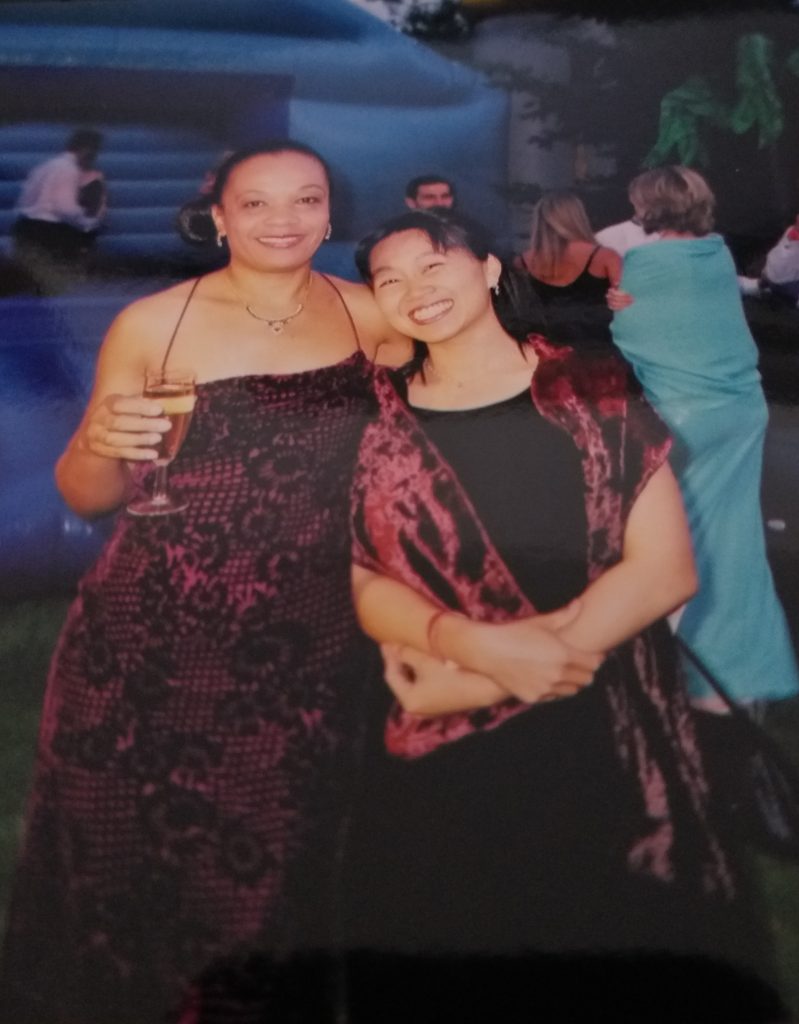
In April when the first ray of sunshine shone down our merry band made its way to the front gardens, spread-eagled in all directions, until the sun went away.
I managed to do well in all my exams and achieved first class honours. I was as flabbergasted as the then dean of faculty seemed to have been. Apart from the degree I got a College prize worth 50 pounds, for achieving a first in Law.
I had looked forward to May Ball from the first week I arrived. Alas, I was ill the night of the ball and even though I got dressed up, with no date and in severe pain, I retired to bed early. I missed the ball and the going down pictures.
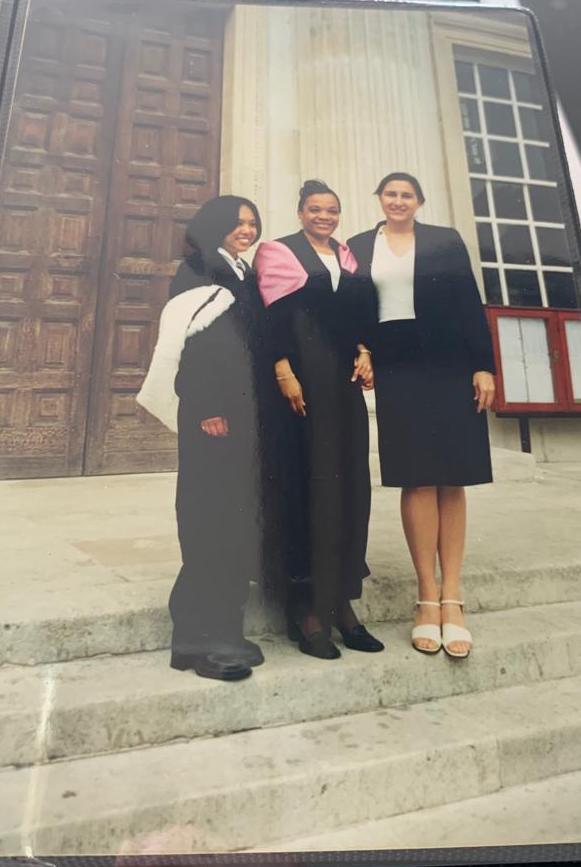
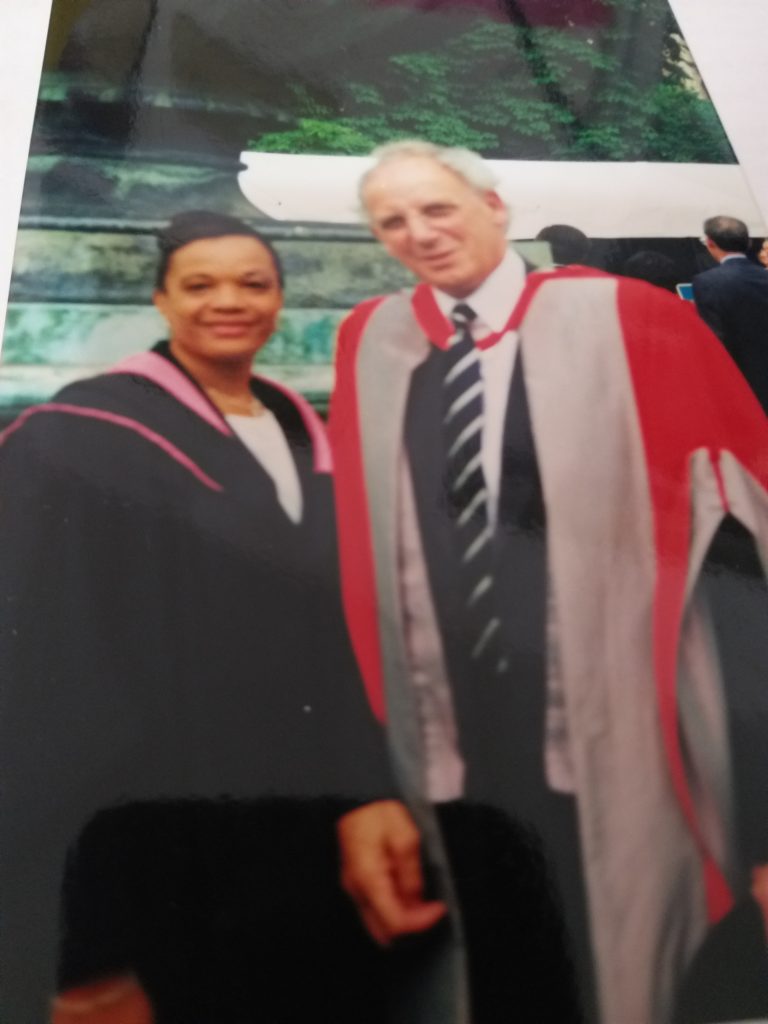
Graduation was an almost spiritual event. I had never experienced anything like it and the excitement of the Eddies graduates as we assembled for the march was almost palpable. We ended the evening with a reception in the dining hall, then off, by invitation only, to drinks at a friendly fellow’s place.
Life After Cambridge
After coming home, I was immediately elevated to the bench. I served in the lower judiciary as a Resident Magistrate, then was promoted to the higher Judiciary. I did a few years as a commercial court judge, making good use of my training in commercial law, in this highly specialized court. During that time I taught law at the only post graduate law school in Jamaica, to international students who qualified overseas but wished to practise in Jamaica. It reminded me a lot of my days at St Edmund’s and was very fulfilling.
I am now a judge of the Court of Appeal of Jamaica, our highest court in the country, although not our final Court Appeal (that would be the Privy Council). However, the majority of our cases in Jamaica are finally determined at this level. There are three Oxbridge graduates on this appellate bench, of which I am proud to be one. It is dominated by women. How times have changed. In an increasingly crowded field, I have found my place and my voice.
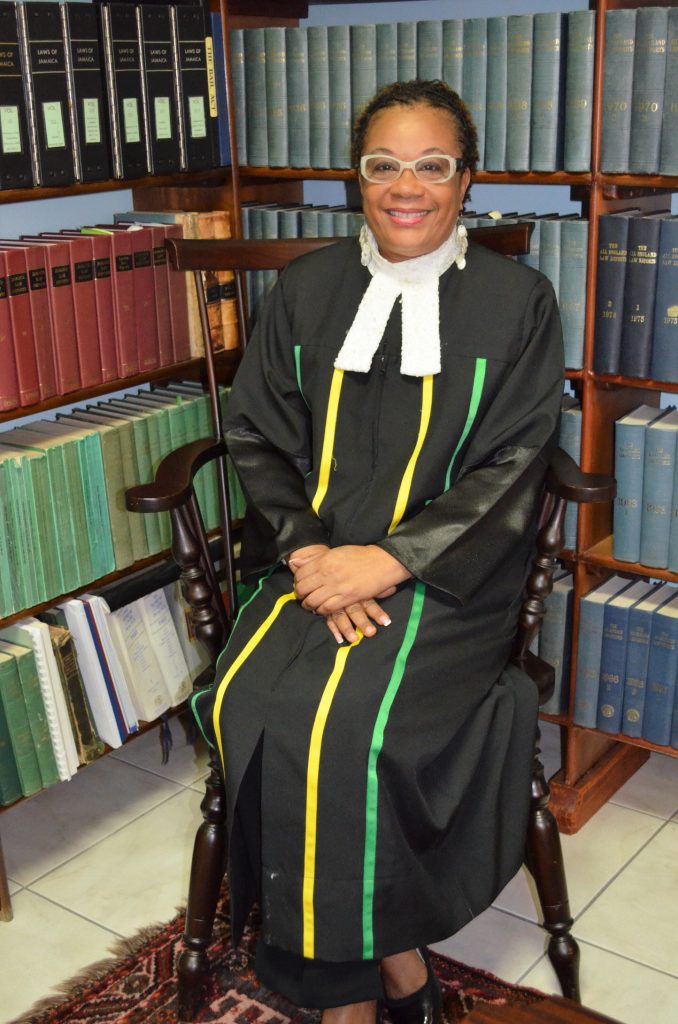
I am an executive member of the Jamaican Association of Women Judges and a member of the International Association of Women Judges. I have been published in our local law journal and I hope to publish again soon. I am a mother of one fierce seven year old, who I am raising to be fearless and to live life without boundaries with the knowledge that she can achieve anything if she but try.
My time at St Edmund’s was the best time of my life. The experience has enriched my life tremendously. It cured me of my imposter syndrome. It showed me that although there are those who are born to greatness and, therefore, entitled, there are others who can achieve greatness by sheer dint of hard work. That was Cambridge’s gift to me and that is my gift to my daughter and any young woman who doubts herself.
The first opportunity I got, I went back to see if the College was as I remembered. It had grown, the butler had retired, Sir Brian was no longer Master, but Judith, dear Judith was still there.
When people ask me what College I went to, I proudly tell them, the little College on the hill. And so it was. But it is not so little now after all.
